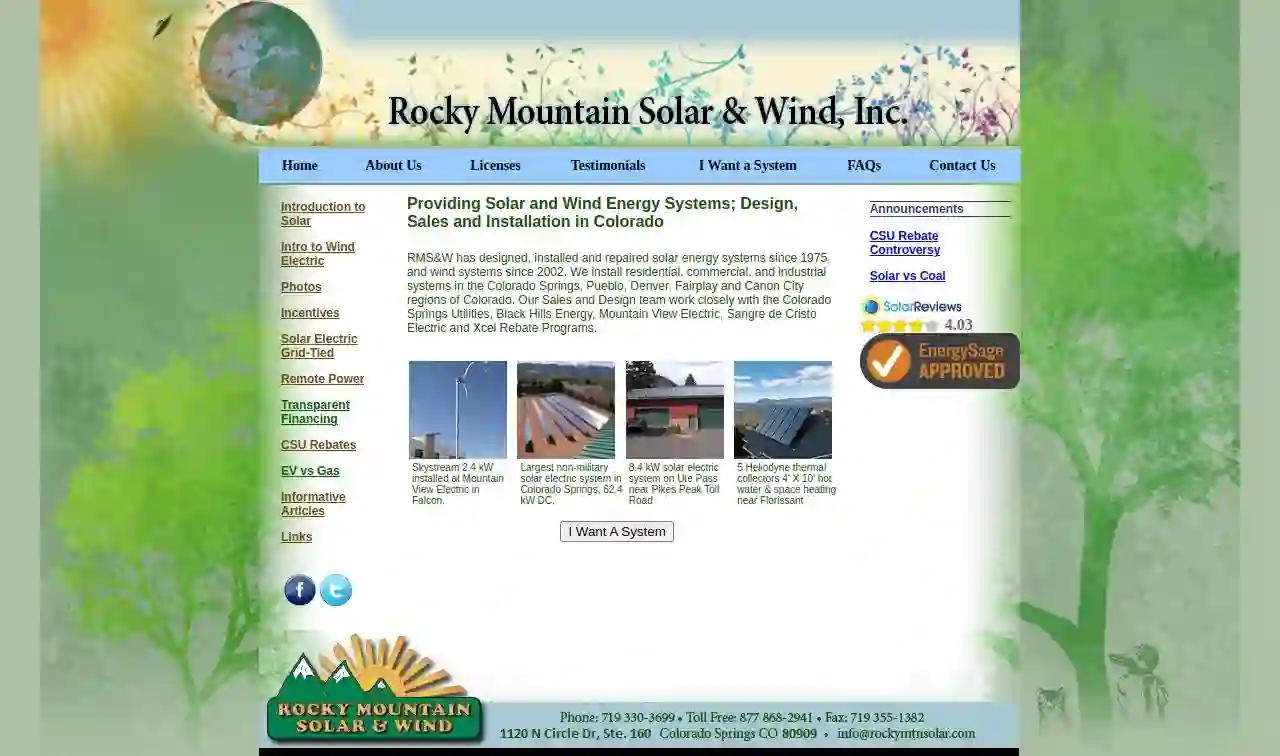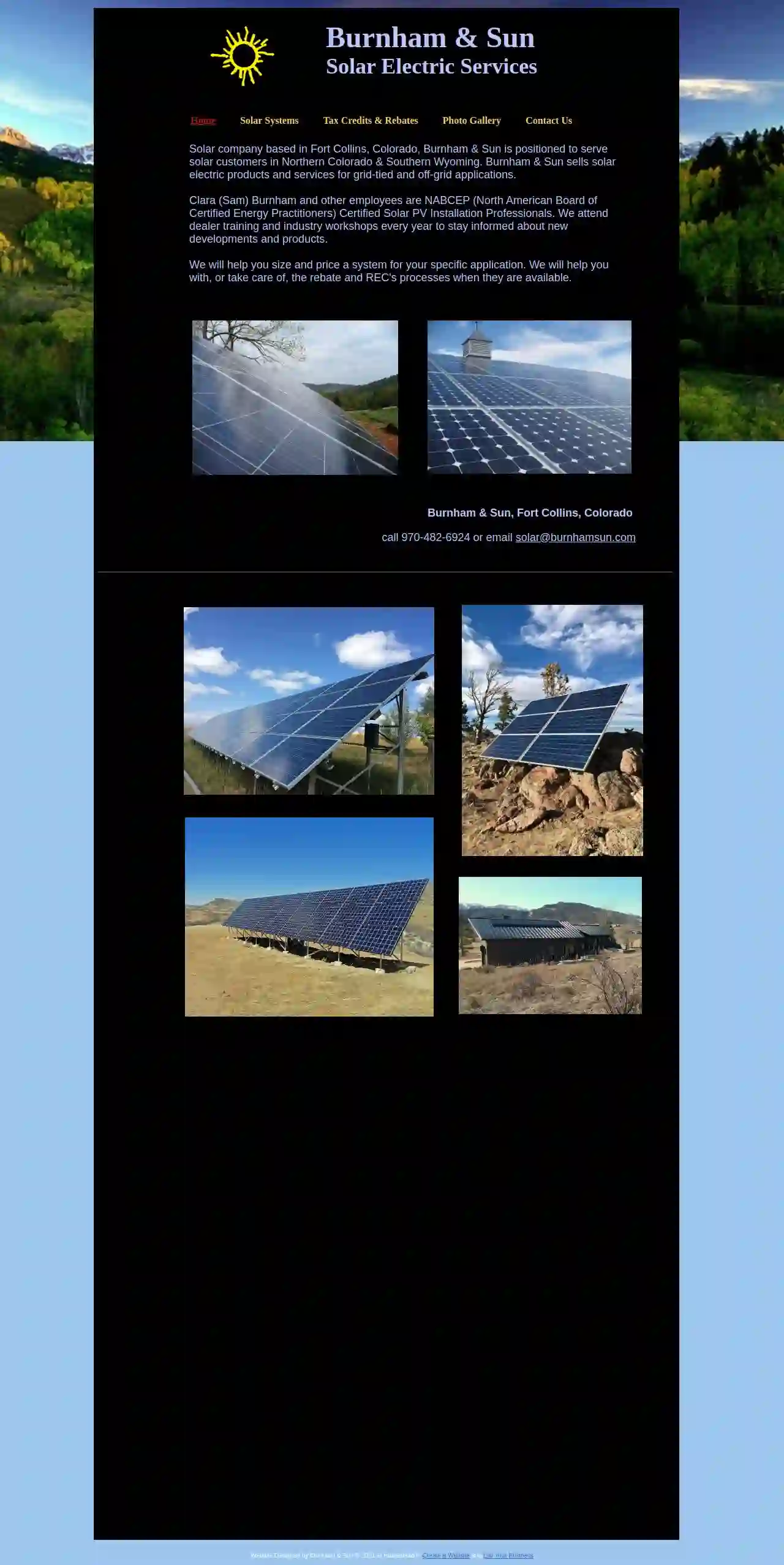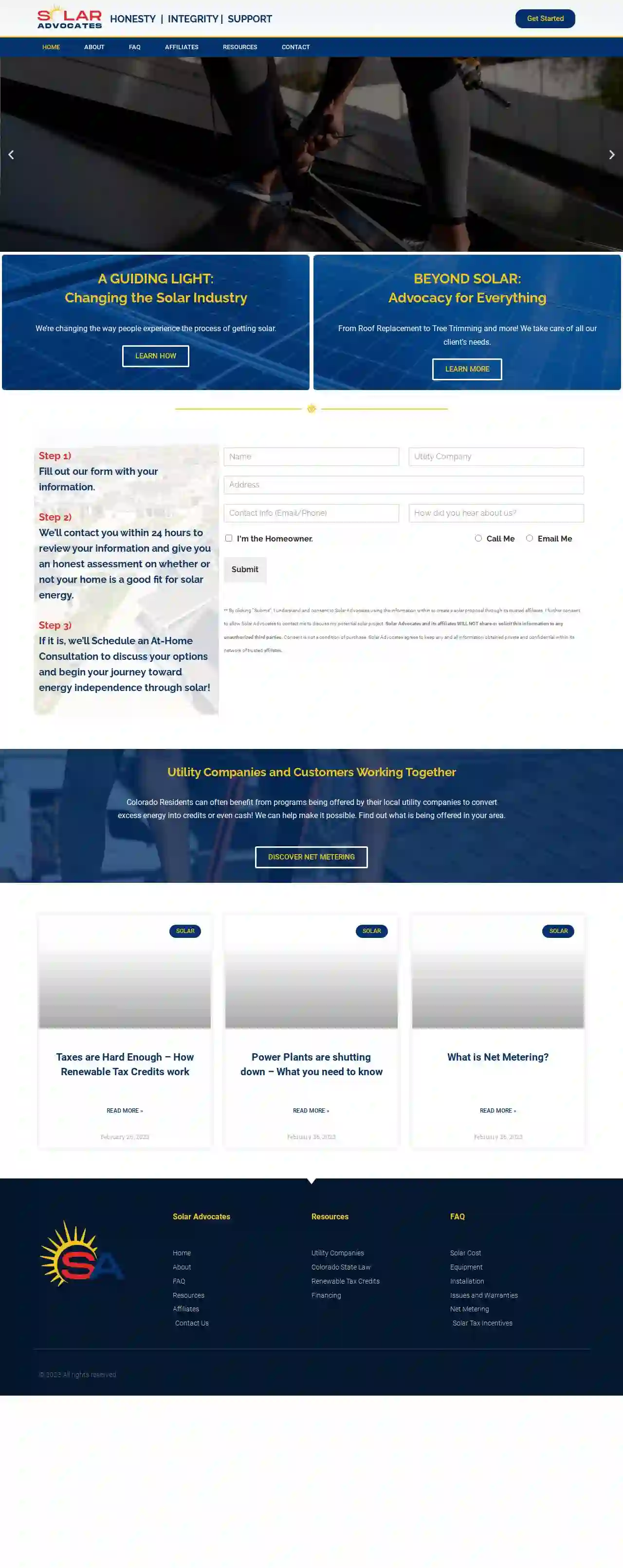Solar Installers Montrose
Best Solar Energy Companies in Montrose
Get 3 FREE Solar Panel Installer quotes for your project today! Compare profiles, reviews, accreditations, portfolio, etc... and choose the best deal.

Rocky Mountain Solar and Wind, Inc.
3.123 reviews1234 Solar Way, 80909, USRocky Mountain Solar and Wind, Inc. (RMS&W) has been designing, installing, and repairing solar energy systems since 1975 and wind systems since 2002. They install residential, commercial, and industrial systems in the Colorado Springs, Pueblo, Denver, Fairplay, and Canon City regions of Colorado. Their Sales and Design team work closely with the Colorado Springs Utilities, Black Hills Energy, Mountain View Electric, Sangre de Cristo Electric, and Xcel Rebate Programs.
- Services
- Why Us?
- Accreditations
- Our Team
- Testimonials
- Gallery
Get Quote
Flatiron Solar
510 reviews4721 Oxford Road, Longmont, 80503, USFlatiron Solar is the leader in solar energy services in the Boulder area. We have made a name for ourselves with our first-class workmanship and complete customer satisfaction. Our commitment is to bring you solar energy on time and on budget. Now is the time to install a solar electric or solar hot water system!
- Services
- Why Us?
- Accreditations
- Our Team
- Testimonials
- Gallery
Get Quote
Sandbox Solar
4.9144 reviews123 Solar Way, Suite 100, Northglenn, 80260, USSandbox Solar is a local solar installer providing comprehensive solar solutions including Home Solar, Battery Storage, EV Charging Stations, Commercial Solar, Solar Repairs, and more. With decades of solar experience, our local professionals handle everything from design, development, installation, and repairs. We provide a full spectrum of solar services from start to finish and long after installation for maintenance and repairs.
- Services
- Why Us?
- Accreditations
- Our Team
- Testimonials
- Gallery
Get Quote
Advanced Thermovoltaic Systems
Suite 101, Fort Collins, CO, 2400 Midpoint Drive, 80525, USAdvanced Thermovoltaic Systems (ATS) is a company that specializes in capturing wasted heat and converting it into energy. They offer mobile and flexible thermovoltaic energy solutions to help industries leverage the potential of clean, renewable energy through waste heat recovery. Their aim is to help clients optimize their processes, generate compelling ESG narratives, and make significant strides towards sustainability.
- Services
- Why Us?
- Accreditations
- Our Team
- Testimonials
- Gallery
Get Quote
Burnham & Sun
3.73 reviewsFort Collins, Colorado, 80521, USBurnham & Sun, a solar company based in Fort Collins, Colorado, is positioned to serve solar customers in Northern Colorado & Southern Wyoming. They sell solar electric products and services for grid-tied and off-grid applications. Clara (Sam) Burnham and other employees are NABCEP (North American Board of Certified Energy Practitioners) Certified Solar PV Installation Professionals. They attend dealer training and industry workshops every year to stay informed about new developments and products. They help customers size and price a system for their specific application and assist with rebate and REC's processes when available.
- Services
- Why Us?
- Accreditations
- Our Team
- Gallery
Get Quote
REenergizeCO - Fort Collins Insulation & Solar
55 reviews1805 E 58th Ave unit k, Denver, 80216, USREenergizeCO is a Colorado-based company that specializes in providing energy audits, solar power, and home insulation services. They aim to help homeowners improve their energy efficiency, reduce costs, and add value to their homes through their comprehensive services. As an approved contractor for Xcel Energy and county-funded programs, REenergizeCO assists homeowners in identifying smart efficiency upgrades and installing insulation for cash rebates and incentives. Their process involves testing, tightening, and designing/building energy-efficient solutions tailored to each customer's specific needs and goals.
- Services
- Why Us?
- Accreditations
- Our Team
- Testimonials
- Gallery
Get Quote
Colorado Community Solar
1234 Solar Way, Suite 100, Denver, 80203, USCommunity Solar Platform is a leading provider of community solar programs, offering guaranteed savings on electric bills for 20-25 years. The company's mission is to provide clean, renewable energy to homes and businesses, reducing CO2 emissions and supporting local clean energy initiatives. With no installation or maintenance costs, customers can enjoy significant savings without any upfront fees.
- Services
- Why Us?
- Accreditations
- Our Team
- Testimonials
- Gallery
Get Quote
Solar Advocates
55 reviews123 Solar Street, Suite 100, Denver, 80202, USSolar Advocates is the product of several companies within the solar industry working together to create the best possible experience for You. We are tired of pushy sales pitches, annoying door knocking, misleading information, and a lack of communication with its customers. We’re changing the game by providing an honest, transparent, and caring process to defend our clients against overbearing salespeople and scam artists.
- Services
- Why Us?
- Accreditations
- Our Team
- Testimonials
- Gallery
Get Quote
Colorado Solar
123 Solar Way, Suite 100, Denver, 80202, USColoradoSolar.CO is a solar energy company that offers a range of services including solar panel installation, solar education, and solar savings reports. They are financially secure, experienced, and focused on doing well by doing good. They are a certified B-Corp and have a record-breaking achievement of being the first solar company to offset 100% of emissions. They use high-quality solar panels from top brands and offer a 30-year warranty on their installations.
- Services
- Why Us?
- Accreditations
- Our Team
- Testimonials
- Gallery
Get Quote
Custom Solar
4.322 reviewsN/A, USCustom Solar has been helping Coloradans own their power with sustainable energy solutions since 2008. Homeowners, contractors, architects, and commercial building owners rely on us for high-quality, custom-designed, value-engineered renewable energy systems.
- Services
- Why Us?
- Accreditations
- Our Team
- Testimonials
- Gallery
Get Quote
Over 4,210+ Solar Contractors on our platform
Our solar installers operate in Montrose and surroundings!
SolarCompaniesHub has curated and vetted the Best Solar Companies in and around Montrose. Find a reliable pro today.
Frequently Asked Questions About Solar Installers
- Your current energy usage
- The size of your solar system
- Your local electricity rates
- The amount of sunlight your panels receive
- Available net metering policies
- Draw electricity from the grid when your solar panels aren't producing enough power (e.g., at night)
- Sell excess solar electricity back to the grid through net metering.
How much can I save on my electricity bill with solar panels?
What is the difference between grid-tied and off-grid solar systems?
What is net metering, and how does it work?
Do I need to replace my roof before installing solar panels?
How much can I save on my electricity bill with solar panels?
- Your current energy usage
- The size of your solar system
- Your local electricity rates
- The amount of sunlight your panels receive
- Available net metering policies
What is the difference between grid-tied and off-grid solar systems?
- Draw electricity from the grid when your solar panels aren't producing enough power (e.g., at night)
- Sell excess solar electricity back to the grid through net metering.